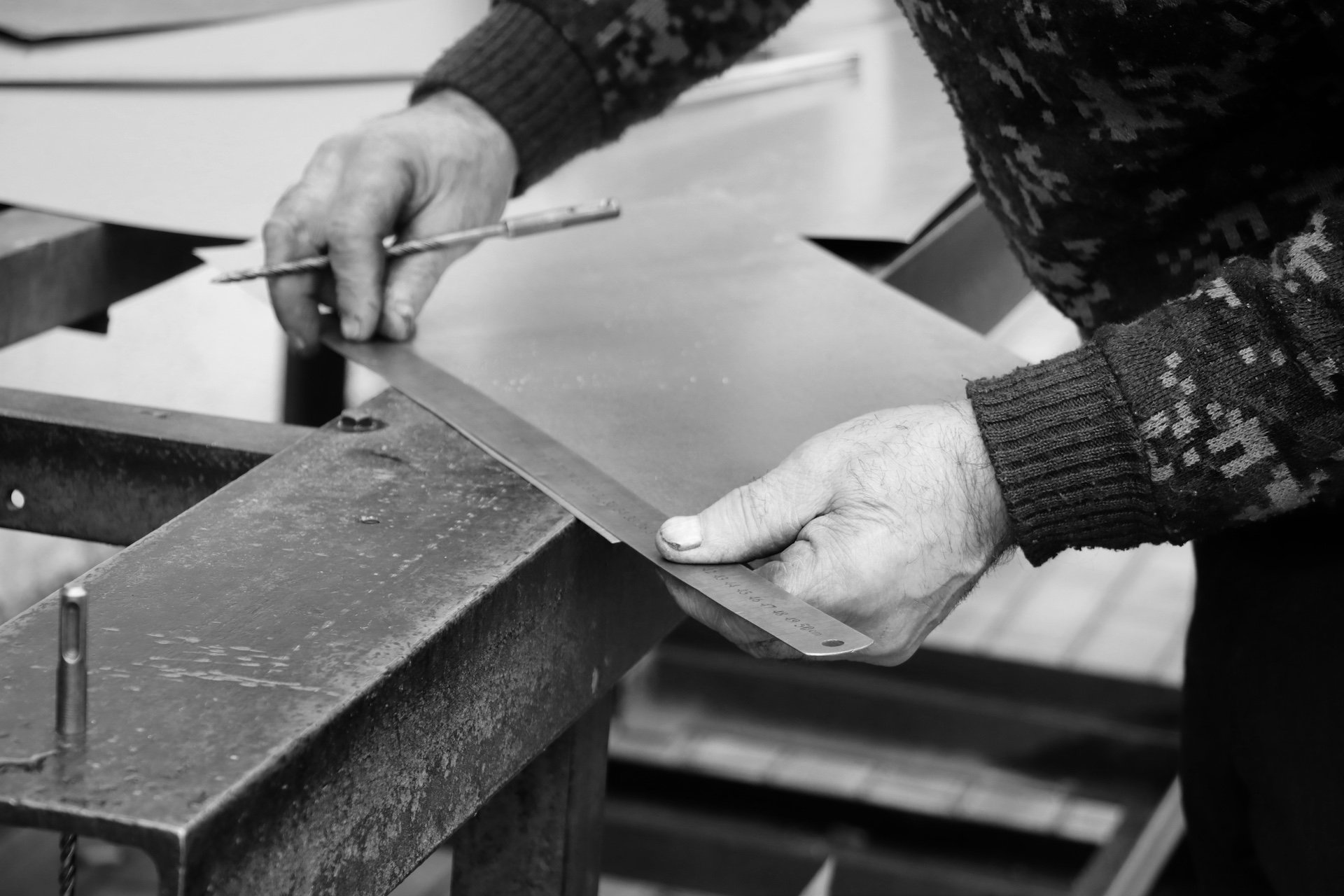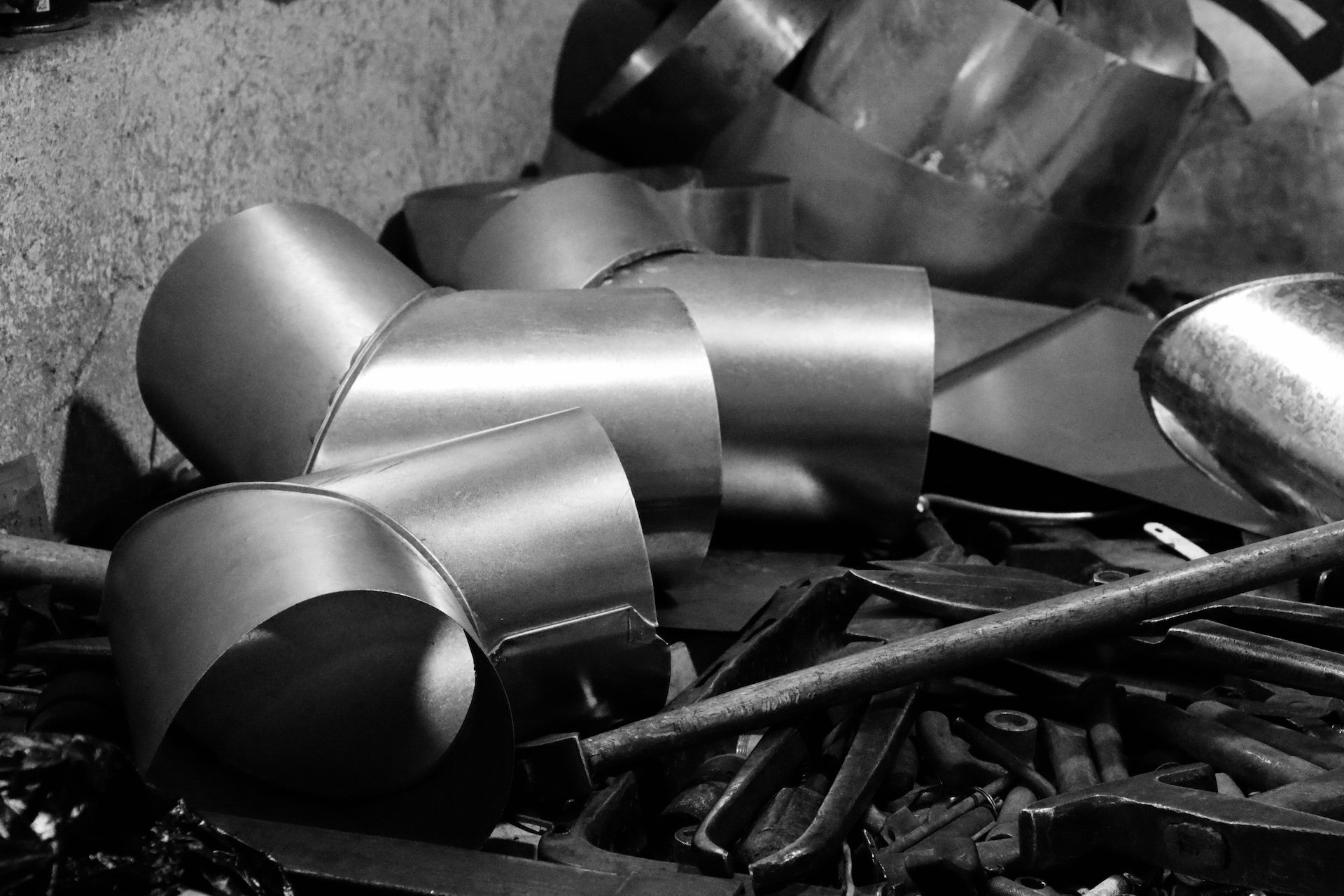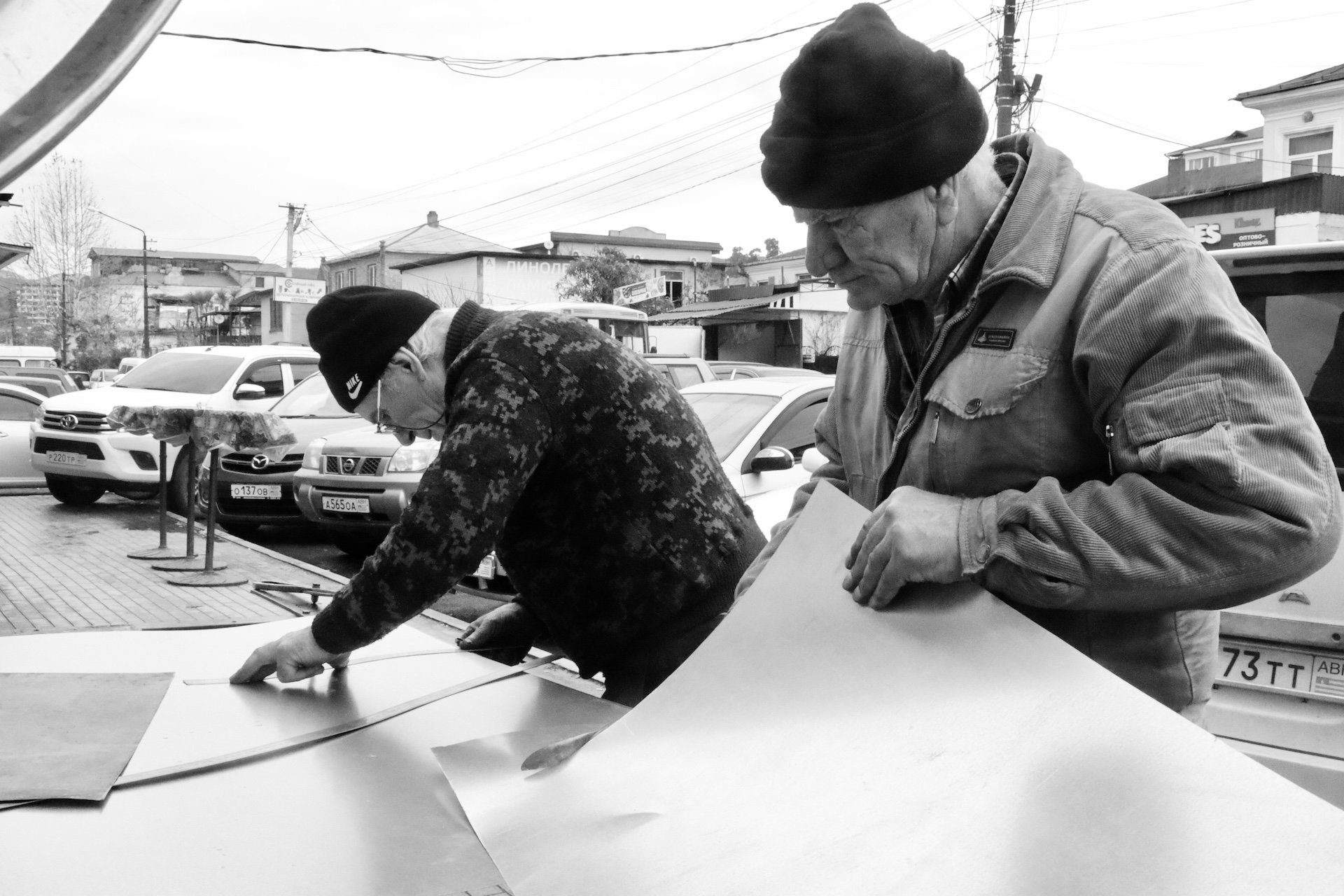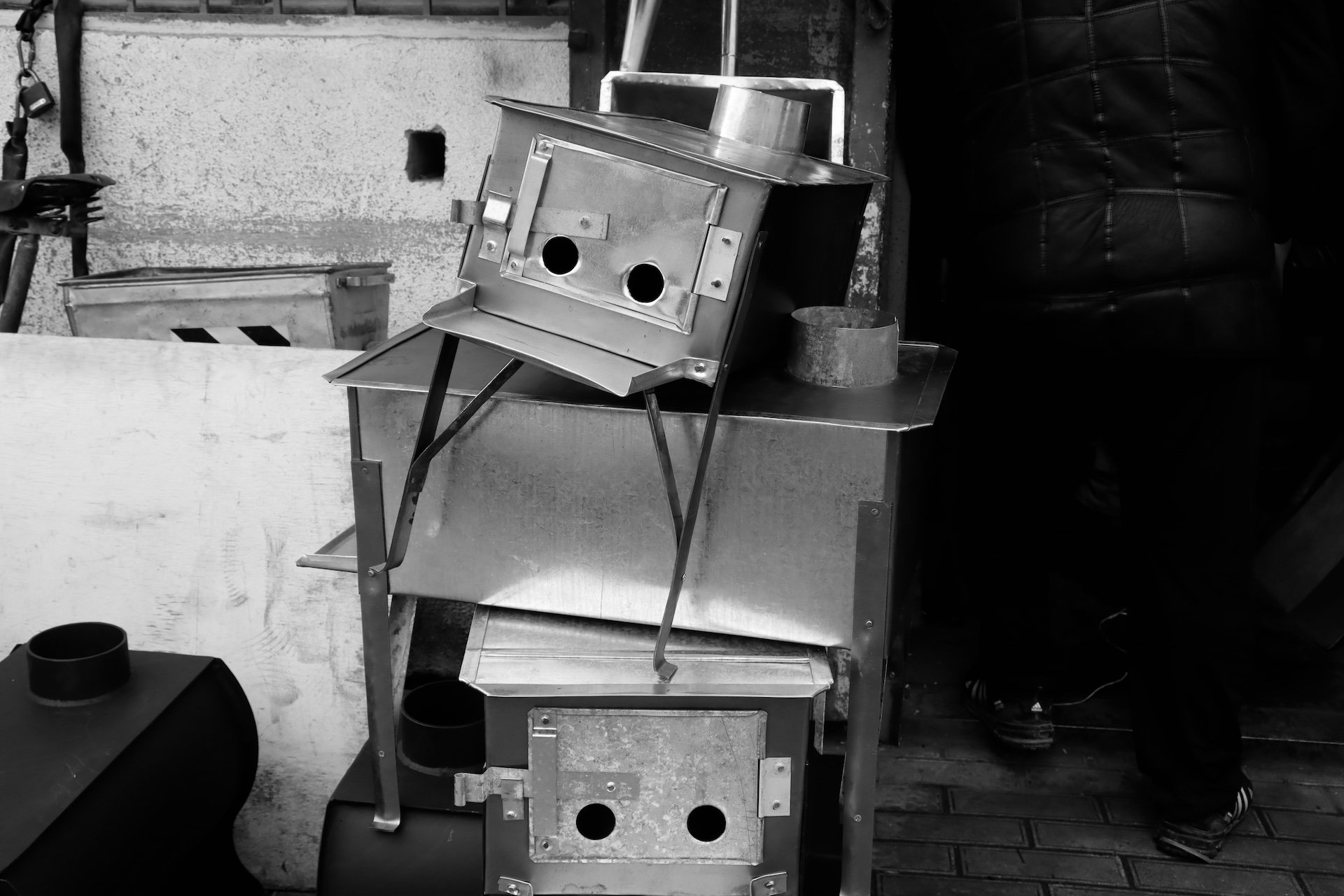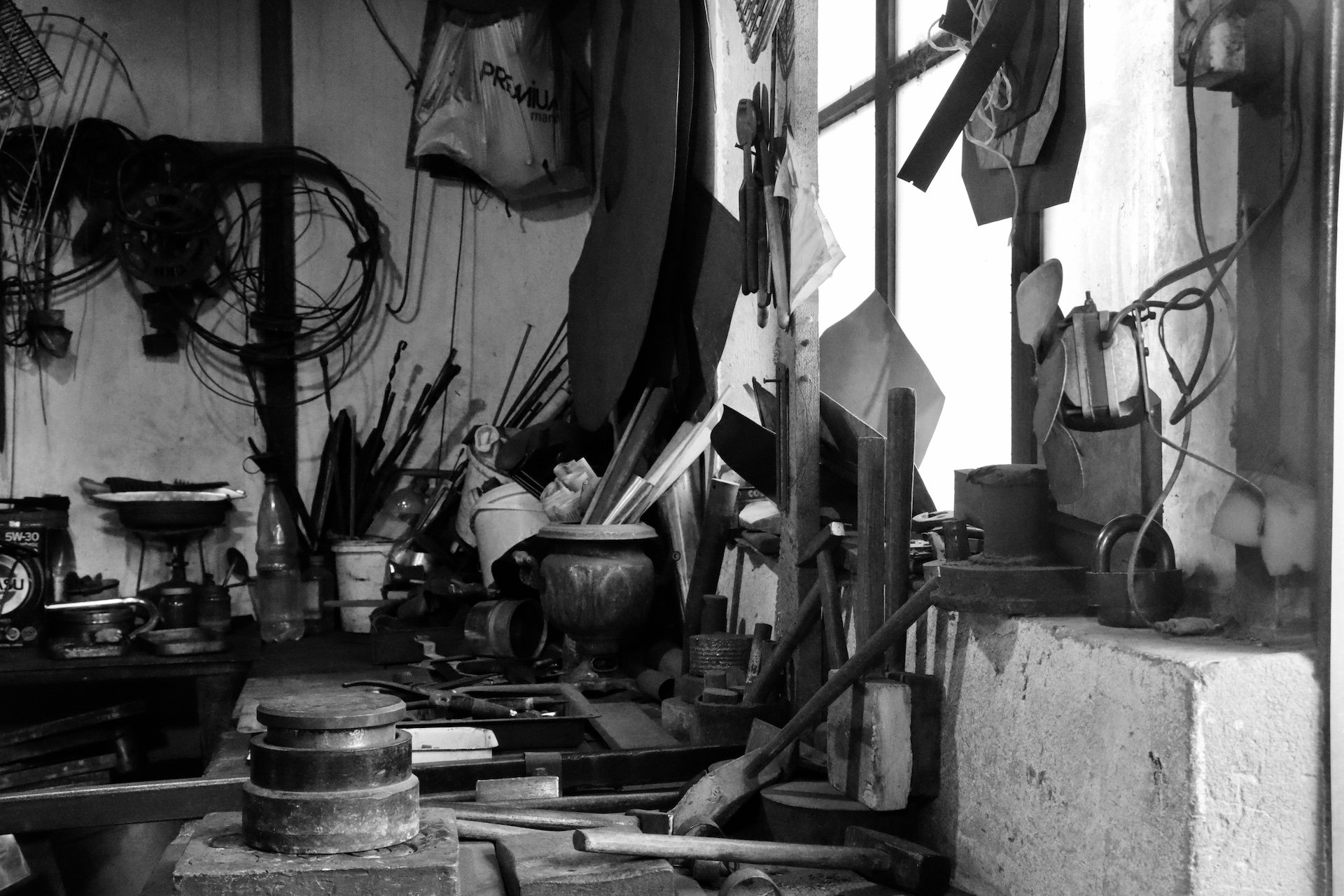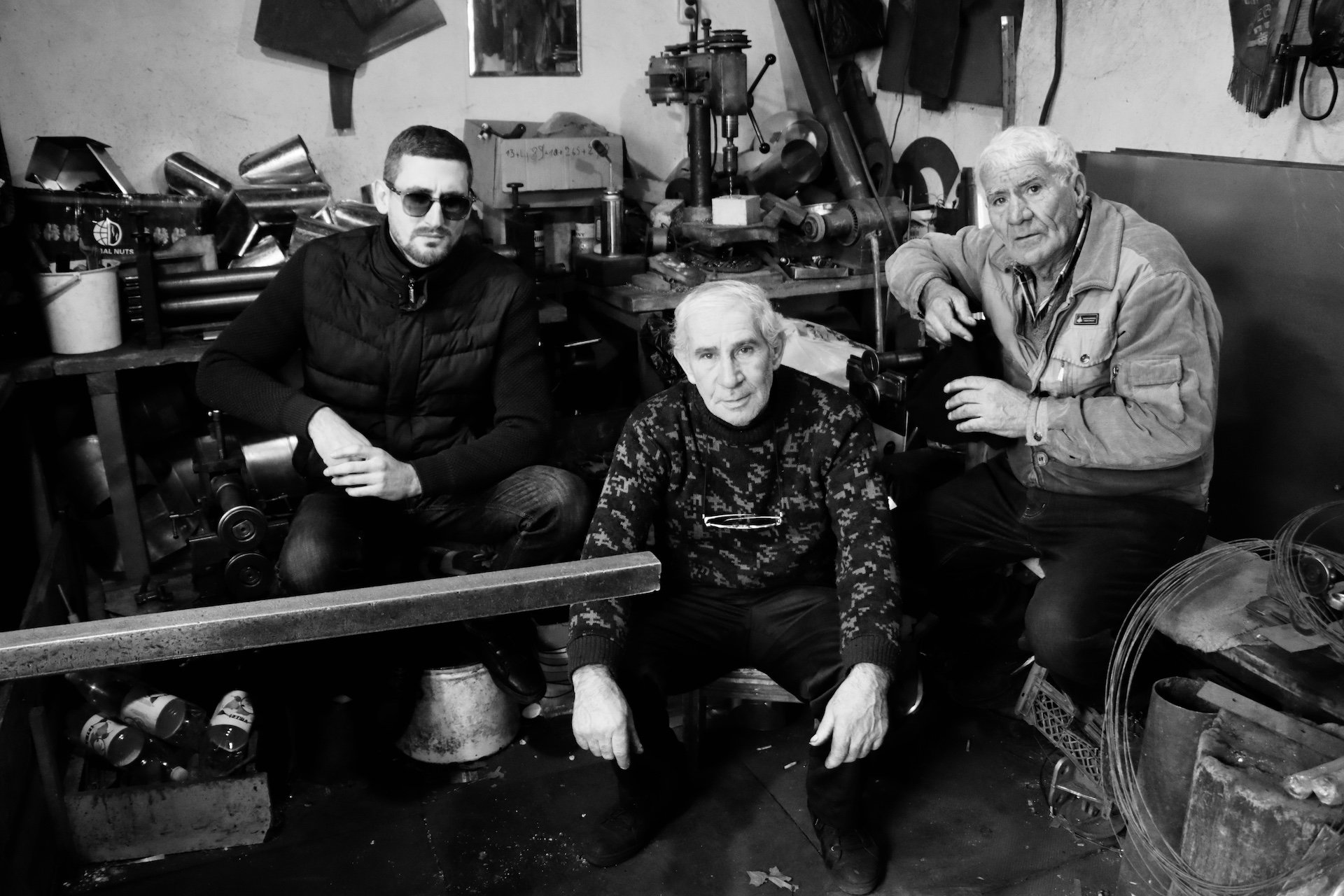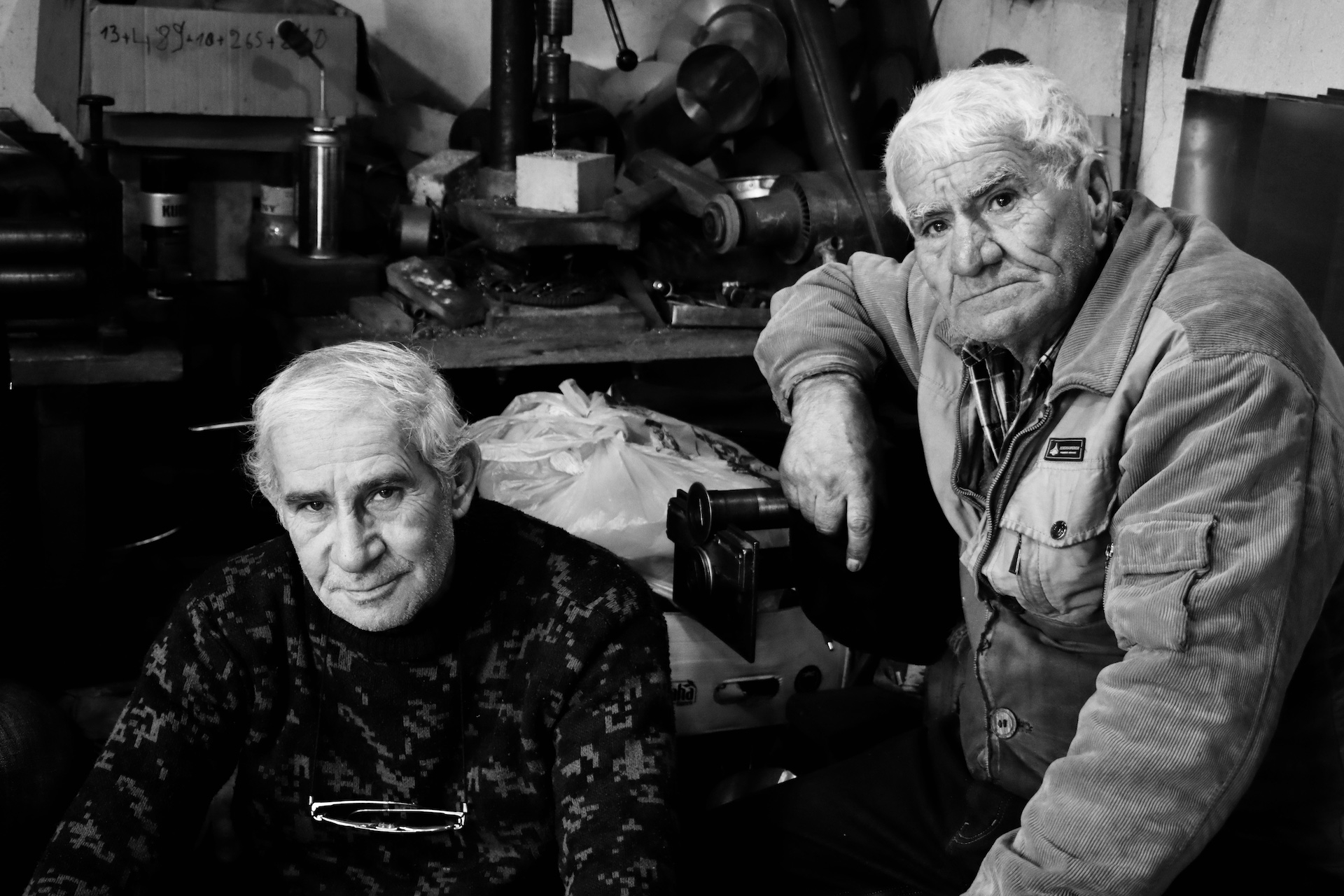
For several years, Abkhazia has faced a worsening energy crisis, with electricity shutdowns becoming a harsh reality every winter. However, the winter of 2024 broke all records. For nearly a month, the entire country received only four hours of electricity during the day and ten hours at night.
Government authorities blame the crisis on a mix of factors—crypto mining, corruption, and tax evasion—but ultimately, the issue boils down to the declining water levels in the Jvar reservoir. While officials try to find solutions, ordinary citizens have been left to find ways to keep warm. In these times, nothing proves more reliable than the "good old wood stove." And when it comes to high-quality, handmade stoves, the locals of Sukhumi know exactly where to go.
The Last Masters of Their Trade
In the heart of Sukhum's market area, amidst the city’s rolling blackouts, one workshop remains constantly in attention - the workshop of crafting stoves. Here, two brothers, Suren and Ambartsum Minasyan, have been crafting stoves, pipes, moonshine stills, traditional Abkhaz utensils, and more for over 50 years.
“We never expected such a surge in demand this year,” the brothers say with a laugh. “People should know—winter preparations start in summer.”
Suren, now 70-years-old, was the first to take up metalwork at the age of 14, with Ambartsum,72, later following in his footsteps.
Before the war in Abkhazia in 90s, there were many more craftsmen in the trade, but over time, the demand dwindled. The brothers lament that younger generations often seek quick profits instead of dedicating themselves to a craft.
“You have to put in effort to do good work,” Suren remarks.
A Workshop in High Demand
These days, the Minasyan brothers barely have a free moment. Orders keep piling up, and as one satisfied customer leaves, another arrives. The only way to catch them for a conversation is while they work. Sheets of metal, guided by their experienced hands, transform effortlessly under the rhythmic strikes of a hammer. A simple metal sheet becomes a pipe, then a stove, then whatever the next customer requests.
Different Paths, Shared Passion
Outside of work, the brothers have their own ways of unwinding. Suren enjoys evenings with friends at a restaurant or an apatskha, while Ambartsum prefers escaping to the mountains, where he finds peace in hiking and exploring.
Their journey has not been without hardship. Childhood memories are difficult for them to discuss—conversations about the past often end in silence, their eyes filled with unspoken pain. Yet, they cherish the memories of their youth, when they traveled freely and built their families.
The war changed everything. Suren’s wife and two daughters left Abkhazia and have lived in Greece ever since. Ambartsum's son, Abel, inherited his father’s love for music and craftsmanship. His band’s songs have reached audiences beyond Abkhazia, yet he still finds time to help in the family workshop, seeing his future in his father’s trade.
Suren and Ambartsum Minasyan are more than just craftsmen—they are keepers of tradition, resilience, and family devotion. Despite the struggles, they continue their work, providing warmth to others while carrying the weight of separation from their loved ones.
